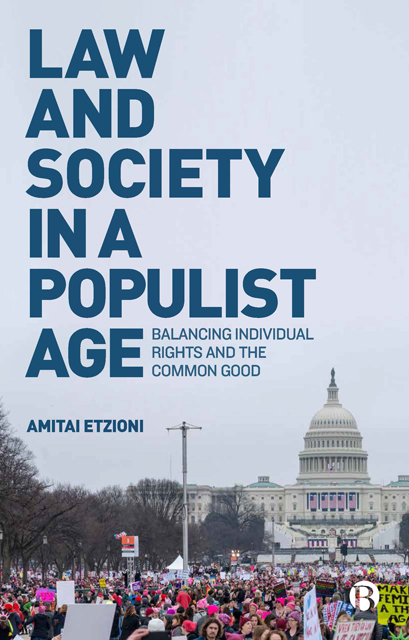five - The common good
Published online by Cambridge University Press: 21 April 2023
Summary
Much of the power struggle that affects laws can be viewed as merely a contest among various special interests, with the legislature acting mainly as the site for this tug of war. Or it is viewed as a tug of war between special interests and the common good, something the legislature supposedly embodies but often neglects. I have already tried to show that moral dialogues often do result in wide SMU as to what is legitimate and what is not. Demonstrating that a given act is serving a common good is a major source of legitimacy. I now turn to show that the concept of common good is a valid one, and then (in the following chapter) the ways that differences between competing interests (and individual rights) and the claims of the common good can be worked out. The common good (alternatively called “the public interest” or “public goods”) denotes those goods that serve all members of a given community and its institutions, and, as such, includes both goods that serve no identifiable particular group, as well as those that serve members of generations not yet born. It is a normative concept with a long and contested history. Philosophers, theologians, lawyers, politicians, and the public have arrived at distinct understandings about what the common good entails, how it should be balanced against individual goods, and if and by whom it should be enforced. Though there are many critics of the concept of the common good (discussed below), it has survived as a meaningful concept for well over two millennia, and continues to serve as a very significant organizing principle of civic and political life.
The common good in philosophical and religious thought
The common good has deep roots in the history of philosophical and religious thought. For Plato “the good” was objective, defined as that which “every soul pursues […] and does whatever it does for its sake.”Arriving at knowledge of the good within a community would create unity, which is “the greatest blessing for a state.”In this conception there is no tension between the private and public good, as individuals are thought to attain happiness (a private good) through the pursuit of justice (a public good).
- Type
- Chapter
- Information
- Law and Society in a Populist AgeBalancing Individual Rights and the Common Good, pp. 93 - 102Publisher: Bristol University PressPrint publication year: 2018



